How to Plant Lemon Seeds
- February 9, 2024
- 0 comment
Growing a lemon tree from a seed is a fascinating process that not only rewards you with fresh, fragrant lemons but also adds a touch of greenery to your home or garden. While the journey from seed to fruit-bearing tree is a long one, the satisfaction of nurturing a plant from its very beginnings is unparalleled. This article will walk you through the detailed steps of planting a lemon seed, caring for the seedling, and eventually, cultivating your lemon tree.

Lemon Health Benefits
| High in Vitamin C | Lemons are a great source of vitamin C, essential for immune system support, skin health, and reducing the risk of cardiovascular disease. |
| Promotes Hydration | Adding lemon to water can enhance taste, encouraging more water consumption and aiding in hydration. |
| Supports Weight Loss | Lemons can increase metabolic rate, helping in weight loss efforts when combined with a healthy diet and exercise. |
| Improves Skin Quality | The vitamin C in lemons can help reduce skin wrinkling, dry skin from aging, and damage from the sun. |
| Aids Digestion | The acidic nature of lemon juice can improve digestion by breaking down food more efficiently and relieving symptoms of indigestion. |
| Freshens Breath | Lemon has antibacterial properties that can help neutralize odors, making it a natural remedy for freshening breath. |
| Prevents Kidney Stones | The citric acid in lemons may help prevent the formation of kidney stones by increasing urine volume and pH, creating a less favorable environment for kidney stone formation. |
| Enhances Iron Absorption | Consuming lemon can increase the absorption of iron from plant foods, thus helping prevent anemia. |
| Reduces Cancer Risk | Lemons contain compounds that have been shown to have anti-cancer properties, although more research is needed in this area. |
| Alkalizes the Body | Despite their acidic nature, lemons are alkaline-forming in the body, which can help restore the body’s pH balance. |
Seed Selection and Preparation
The first step in planting a lemon seed is selecting the right seed. Choose a fresh lemon, preferably from an organic source, to increase the chances of germination. Organic lemons are less likely to have undergone treatments that could affect seed viability.
Variety Selection
Start by choosing a lemon from a variety that suits your climate and flavor preferences. Consider varieties like Eureka, Lisbon, or Meyer, depending on whether you want a classic sour lemon or a sweeter, less acidic fruit.
- Eureka Lemon: Common, tart-flavored with bright yellow skin, suitable for year-round use and versatile in cooking.
- Lisbon Lemon: Similar to Eureka, nearly seedless, with a smooth skin and high juice content, known for a strong aroma and slightly more acidic taste.
- Meyer Lemon: Sweeter, less acidic, resembling a lemon-mandarin orange cross, with deep yellow to orange skin, popular in desserts.
- Ponderosa Lemon: Large, thick-skinned, and highly acidic, a hybrid possibly between a lemon and a citron, with moderate juice content.
- Sorrento Lemon: Valued in Limoncello production, originating from Italy, with thick, fragrant skin, sweet zest, and less acidity.
- Femminello St. Teresa Lemon: Similar to Sorrento, used in Limoncello, known for its fragrant skin and high juice content.
- Pink Variegated Lemon: Striped green and yellow skin turning creamy yellow with ripe, pink flesh, mild and sweet flavored.
- Verna Lemon: A Spanish variety with thick skin and high juice content, larger than Eureka and Lisbon, slightly less acidic.
- Primofiori Lemon: Another Spanish variety, smaller and thinner-skinned than Verna, juicy with high acid content, great for culinary uses.
- Yen Ben Lemon: A New Zealand variety descending from Lisbon, known for smooth skin, high juice content, and strong acidic flavor.
Extracting Seeds
Careful Cutting
Slice the lemon carefully to avoid damaging the seeds inside.
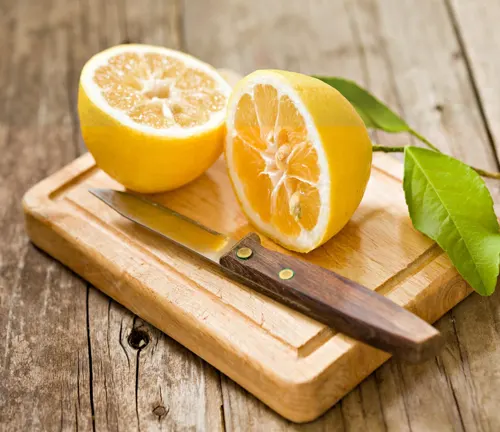
Seed Extraction
Gently squeeze or scoop the seeds out of the lemon. It’s advisable to choose plump, healthy-looking seeds, as they’re more likely to germinate.
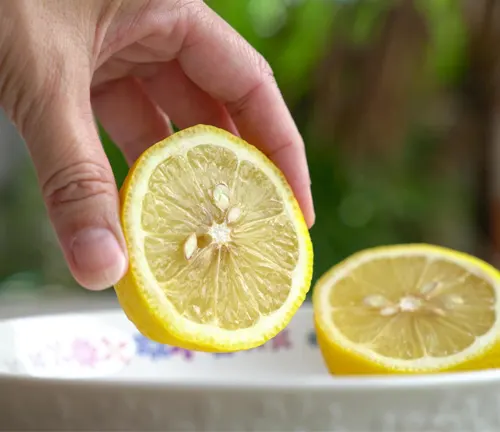
Preparing Seeds for Planting
Immediate Use
Plant the seeds as soon as possible after extraction. Lemon seeds are best planted fresh and can lose viability quickly when exposed to air.
Rinsing
Wash the seeds under cool, running water to remove any clinging fruit pulp or sugary residue. This step is crucial to prevent mold or fungal growth that can impede germination.
Drying
Gently pat the seeds dry with a paper towel. They should be moist but not wet when planted.
Optional Pre-Germination Steps
Soaking
Some gardeners prefer to soak the seeds overnight in lukewarm water to soften the outer coating and encourage germination. However, this step is optional and not strictly necessary for lemon seeds.

Peeling the Outer Coat
For a potentially faster germination, you can carefully peel the outer brown coat of the seed, revealing the lighter inner seed. Be cautious, as this can damage the seed if not done gently.
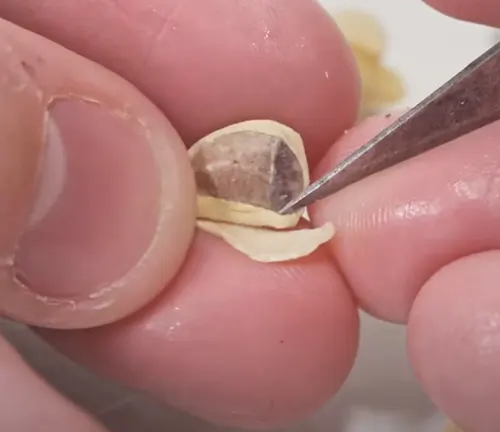
Planting Your Seed
Soil and Container
Select a small container with drainage holes to prevent waterlogging, which could rot the seed. Fill the container with a well-draining potting mix, ideally one formulated for citrus or seed starting.
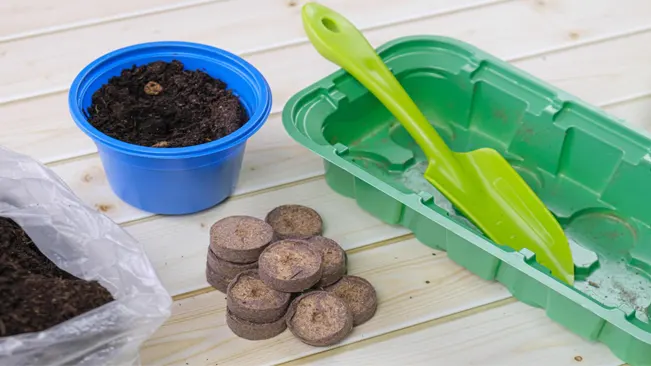
Seed Placement
Plant the seed about half an inch deep in the center of the pot. You can plant a couple of seeds in one pot to increase the odds of germination.
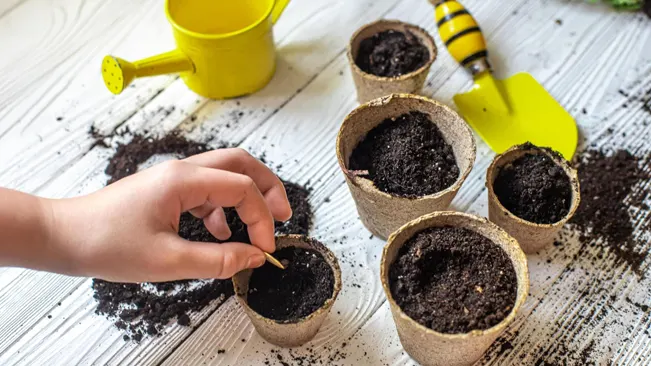
Moisture and Warmth
After planting the seed, water the soil lightly, ensuring it’s moist but not soggy. Cover the pot with clear plastic wrap or a plastic bag to create a greenhouse effect, maintaining moisture and warmth.
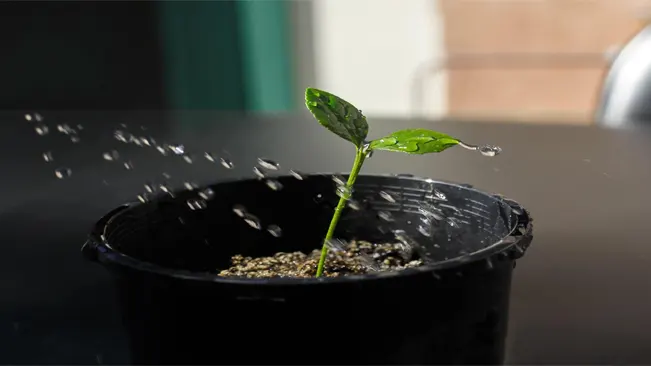
Location
Place the pot in a warm, sunny spot. Lemon seeds need a temperature between 70°F and 85°F (21°C to 29°C) to germinate. If such conditions aren’t available naturally, consider using a heat mat or grow lights.
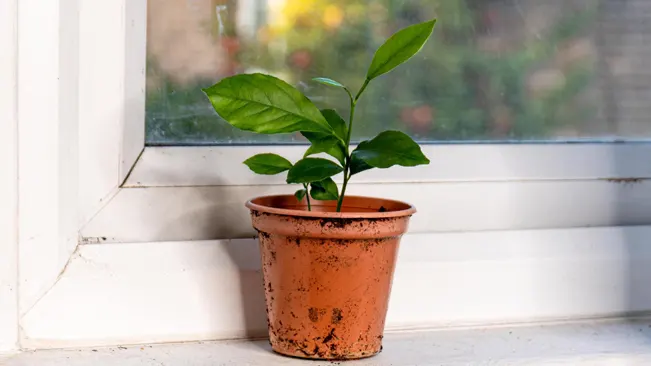
Germination and Beyond
Germination can take anywhere from two weeks to a month. During this period, it’s crucial to keep the soil consistently moist. Once the seedlings emerge, remove the plastic cover to allow them to breathe and continue to ensure they receive plenty of sunlight or artificial light.
As the seedlings grow, they’ll require more space. When they have a few sets of true leaves, consider transplanting them into larger pots with fresh potting soil. This is also the time to start introducing a balanced, slow-release fertilizer to support their growth.
Caring for Your Lemon Tree
Lemon trees require consistent care to thrive:
- Watering: Keep the soil evenly moist, reducing watering in the winter months.
- Light: Provide at least 8 hours of direct sunlight daily.
- Pruning: Prune the tree to shape it and remove any dead or diseased branches.
- Feeding: Use a citrus-specific fertilizer to provide the necessary nutrients throughout the growing season.
Patience is Key
Remember, patience is crucial when growing a lemon tree from seed. It can take several years for the tree to mature and produce fruit. However, the process of nurturing your tree from a tiny seed is rewarding in itself, offering a deep connection to nature and the satisfaction of homegrown produce.
Conclusion
In conclusion, planting a lemon seed is a journey of patience and care, but the rewards—fragrant blooms, lush foliage, and tangy fruits—are well worth the effort. Whether you’re an experienced gardener or a novice, the experience of growing a lemon tree from seed is both educational and rewarding, providing not just fruit, but a beautiful addition to your home or garden.
FAQs (Frequently Asked Questions)
- Can I use seeds from any lemon to grow a lemon tree?
Yes, you can use seeds from any lemon; however, seeds from organic lemons might have a higher germination rate as they’re less likely to have been treated with growth inhibitors. - Do lemon seeds need to be dried before planting?
No, lemon seeds should be planted fresh, directly after being extracted from the fruit. Drying out can decrease their viability. - How long does it take for a lemon seed to germinate?
Lemon seeds can take anywhere from two weeks to a month to germinate, depending on conditions such as temperature and humidity. - Do I need to remove the outer shell of the lemon seed before planting?
It’s not necessary, but gently removing the outer shell or nicking it can sometimes speed up germination. Be careful not to damage the inner seed. - How deep should I plant a lemon seed?
Lemon seeds should be planted about half an inch (1.25 cm) deep in the soil. - What type of soil is best for planting lemon seeds?
Use a well-draining potting mix, ideally one formulated for citrus plants or seed starting, to ensure proper drainage and aeration. - How often should I water lemon seeds after planting?
Keep the soil consistently moist but not waterlogged. The top inch of soil should feel damp to the touch. - When should I transplant my lemon seedling?
Transplant your lemon seedling when it outgrows its current pot or when it has several sets of true leaves, indicating a strong root system. - Can lemon trees grown from seed bear fruit?
Yes, but it can take several years (5-15 years) for a tree grown from seed to mature enough to produce fruit, and the fruit may not be identical to the parent lemon due to genetic variation. - Do lemon trees need full sun?
Yes, lemon trees thrive in full sun, requiring at least 6-8 hours of direct sunlight per day. If you’re growing a lemon tree indoors, a south-facing window or supplemental grow lights can provide the necessary light.
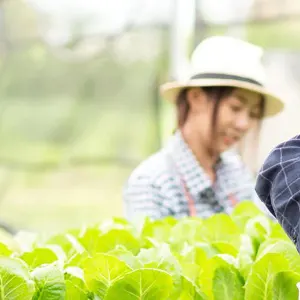
Kristine Moore
Forestry AuthorI'm Kristine Moore, a seasoned garden landscaping professional with over 30 years of experience. My extensive career has been dedicated to transforming outdoor spaces into stunning, sustainable landscapes. With a deep understanding of horticulture, design principles, and environmental stewardship, I have become a respected figure in the field, known for creating harmonious, visually appealing, and eco-friendly gardens. My commitment to excellence and continuous learning in landscaping trends and techniques has solidified my reputation as an expert in garden design and implementation.













Leave your comment